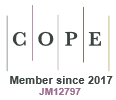Problems, paradoxes, paradigms: triangulating fire research*
Stephen J. PyneSchool of Life Sciences, Arizona State University, PO Box 874701, Tempe, AZ 85287-4701, USA. Email: stephen.pyne@asu.edu
International Journal of Wildland Fire 16(3) 271-276 https://doi.org/10.1071/WF06041
Submitted: 28 March 2006 Accepted: 26 October 2006 Published: 3 July 2007
Abstract
Wildland fire research has historically orbited around a physical paradigm of fire. This strategy has yielded remarkable results, yet increasingly it cannot speak to the core issues that concern fire management. Two additional paradigms are needed. One would build on fire’s origins in the living world. The other would evolve out of fire’s significance to humanity, and humanity’s unblinking importance to fire’s presence on Earth. Note that each paradigm is coherent in itself, that each is capable of absorbing the others, and that each is insufficient on its own. It is unlikely that a master synthesis of these conceptions will emerge, and is not necessary. The need is to sustain research that addresses how fire really exists, not how select sciences can handle it. This essay sketches what the resulting fire-research triangle might look like.
Additional keywords: anthropogenic fire, biology of fire, culture of fire, fire modelling.
Acknowledgements
I wish to thank Richard Hecker and Michael Flannigan for their exceptional mix of patience and daring in allowing the original draft to wend through the review process, and to those anonymous reviewers who demanded that a rant more appropriate to a blog be rewritten as an essay suitable to a leading academic journal. That is what the review process is supposed to do. My thanks to you all.
* Portions of this essay were delivered in a lecture to the V International Conference on Forest Fire Research, Coimbra, Portugal, November 2006 and are contained on the CD-ROM of its proceedings.


